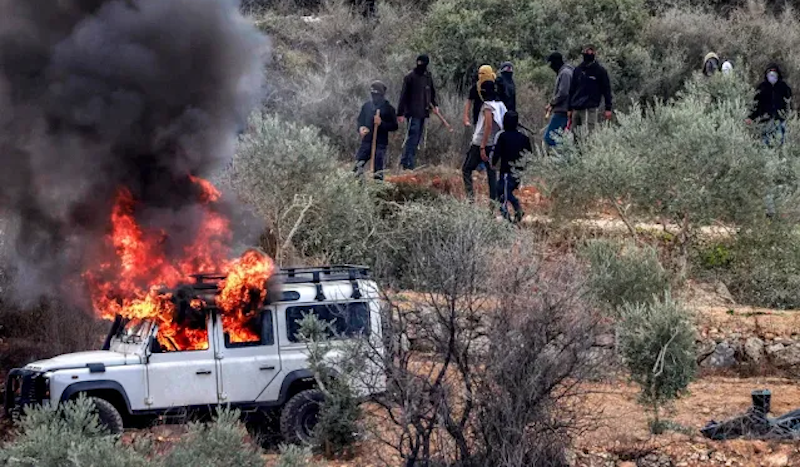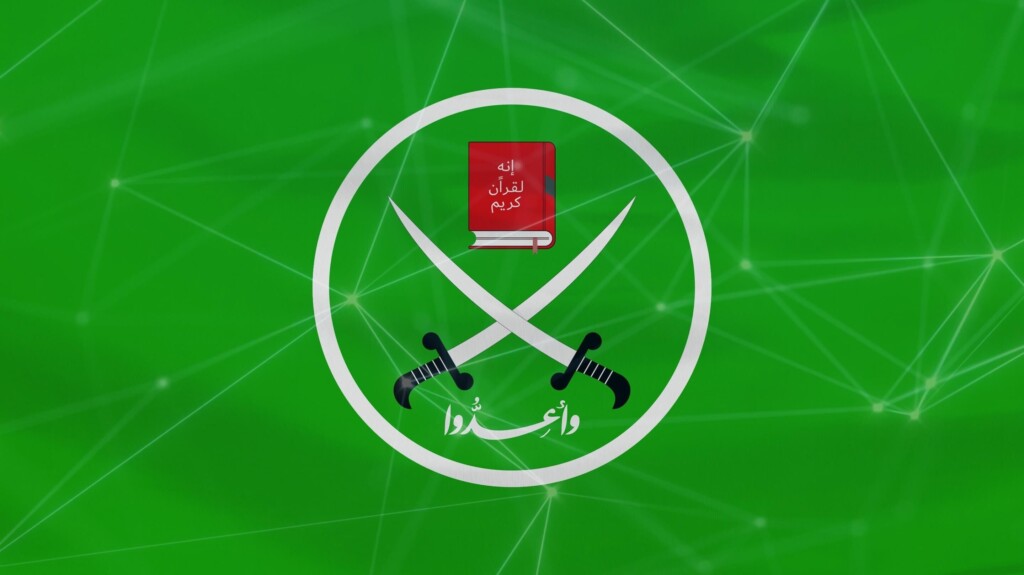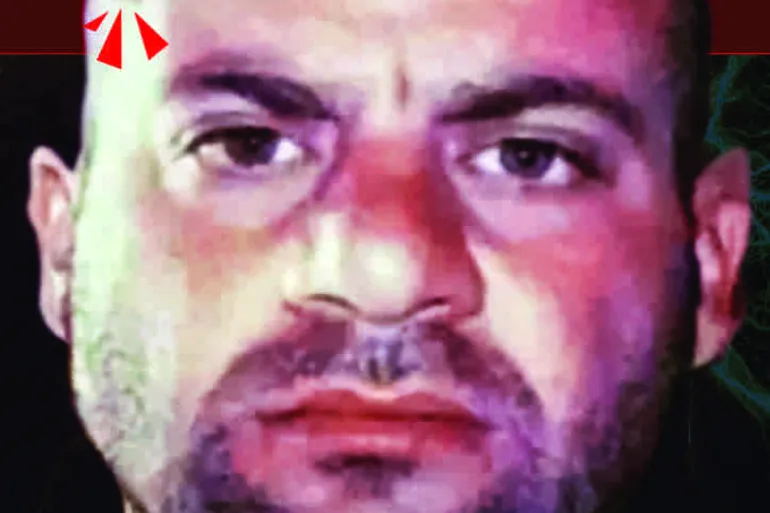Month: October 2025
Lynchages, incendies, massacres de troupeaux : la Cisjordanie face à une violence israélienne sans précédent

Une violence sans frein
Les deux dernières années ont été une période de violence israélienne déchaînée. Dans la bande de Gaza, cette violence a pris des proportions monstrueuses ; mais en Cisjordanie aussi, les Palestiniens en subissent leur part. Chaque lieu a sa propre forme de violence. Ici, en Cisjordanie, elle est exercée conjointement par toutes les forces israéliennes présentes : armée, police, police des frontières, service de sécurité intérieure (Shin Bet), administration pénitentiaire, coordinateurs de sécurité des colonies – et bien sûr, des civils israéliens. Souvent, ces civils portent des bâtons, des barres de fer ou des pierres, d’autres des armes à feu. Des milices opérant hors la loi mais dans son giron. Parfois, les civils prennent l’initiative et les forces officielles les couvrent ; parfois, c’est l’inverse. Le résultat, lui, ne change pas.
The Avalon Project : Hamas Covenant 1988
The Covenant of the Islamic Resistance Movement
In The Name Of The Most Merciful Allah
“Ye are the best nation that hath been raised up unto mankind: ye command that which is just, and ye forbid that which is unjust, and ye believe in Allah. And if they who have received the scriptures had believed, it had surely been the better for them: there are believers among them, but the greater part of them are transgressors. They shall not hurt you, unless with a slight hurt; and if they fight against you, they shall turn their backs to you, and they shall not be helped. They are smitten with vileness wheresoever they are found; unless they obtain security by entering into a treaty with Allah, and a treaty with men; and they draw on themselves indignation from Allah, and they are afflicted with poverty. This they suffer, because they disbelieved the signs of Allah, and slew the prophets unjustly; this, because they were rebellious, and transgressed.” (Al-Imran – verses 109-111).
Patient Extremism: The Many Faces of the Muslim Brotherhood

Introduction
In the 1988 charter that announced its existence, Hamas introduced itself as “one of the wings of the Muslim Brotherhood in Palestine.” The charter then informs the reader that the Brotherhood “is a universal organization that constitutes the largest Islamic movement in modern times.”1 That is no idle boast. The Brotherhood has scores of national branches across the globe. Among those branches, Hamas stands out for its unbroken record of violence and its readiness to massacre men, women, and children, as it did in southern Israel on October 7, 2023. Yet the ideas that animate Hamas are not unique; they are part of the Brotherhood’s common heritage. These ideas have also spread far beyond the Brotherhood, animating al-Qaeda, the Islamic State, and many other lethal organizations.
Profile: Who was Abu Ibrahim al-Qurayshi?

Al-Qurayshi was a shadowy and brutal figure who led ISIL when under intense military pressure from the US and allied forces.
Abu Ibrahim al-Hashimi al-Qurayshi led ISIL (ISIS) from the shadows for a little more than two years before he was killed during a raid by US forces on a house in northern Syria.
The New Supply Chain Insecurity

In a matter of months, the Trump administration has rewritten the rules of U.S. trade policy. It has imposed blanket tariffs on nearly every country, starting at ten percent and rising as high as 50 percent. Levies on a host of products, such as steel, aluminum, cars, and car parts, have raised these trade barriers even further. At an average effective rate of around 18 percent, U.S. import taxes are now the highest they have been in nearly a century.
UAE Political Science Professor Abdulkhaleq Abdulla: Hamas Has Lost, It Should Apologize For Its Act Of Stupidity; Lebanon Should Sign Peace With Israel Like Jordan And Egypt; Hizbullah Is Weak, Naim Qassem Is Not Rational, Gulf States Reject His Rhetoric
In an October 4, 2025 interview on Spot Shot on YouTube, UAE political science professor Abdulkhaleq Abdulla said that Hamas has lost, not the Palestinian cause, and that it must admit its loss and apologize for its “act of stupidity.” He suggested that Lebanon sign a peace agreement with Israel, like Jordan and Egypt, which both border Israel and have benefited from such agreements.
Fatah Official Abdallah Kamil: Hamas Has Emerged From The Tunnels Only To Crack Down On Its Own People; Gaza Is The Only War Where The Fighters Hide Underground While The Population Remains Above, Suffers The Casualties
In an October 11, 2025 show on Palestine TV, Abdallah Kamil of the Fatah Revolutionary Council reacted to Hamas’s crackdown on suspected “collaborators” following the ceasefire in the Gaza Strip. He slammed Hamas for spending the war below ground in tunnels while the population remained above ground, saying that the Gaza Strip was the only place where civilians were above ground and the army was underground during a war. Kamil said that during the war in Beirut, under Yasser Arafat’s instructions, the fighters remained above ground while civilians stayed in underground shelters – which is why most casualties were among the fighters. He added that now, after the ceasefire, Hamas has emerged from underground only to turn on its own people.
Abdallah Kamil: “Where were [Hamas]? In bomb shelters, in the tunnels.
[…]
“Never in my life have I heard about a war in which the army was below ground, while the people were above the ground, except for the Gaza Strip. We heard about the Battle of Stalingrad. The entire Russian army was above ground, and the people were below ground.
“Let me tell you something. During the Beirut War, Yasser Arafat gave clear instructions. There was a bomb shelter in every building. This is the reason that the overwhelming majority of the martyrs were from among the Palestinian fighters in Beirut – because they were the ones above ground, and the people were below ground.
“The people [in Gaza] were above ground, and they were hit. Their homes, schools, mosques, universities – everything is gone, as a result of this adventure.
[…]
“You emerged from under the ground only to turn on your people? The people have sacrificed more than 70,000 martyrs. Do they need these scenes? This is a disgrace.”
Palestinian President Mahmoud Abbas: No Concessions Were Made In The Oslo Accords – 1.85 Million Palestinians Returned To Their Homeland; Pro-Palestinian UNSC Resolution 2334 Was A Parting Gift From The Obama Administration And NSA Susan Rice
In a September 1, 2025 interview on Al-Arabiya Network (Saudi Arabia), Palestinian Authority President Mahmoud Abbas rejected claims that the Palestinians made any concessions in the Oslo Accords. He said that, on the contrary, the Oslo Accords achieved the return of 1,850,000 Palestinians to their homeland. Abbas added that United Nations Security Council Resolution 2334, which deemed Israeli settlements illegal, was a parting gift from President Obama and his administration. He said that then-National Security Advisor Susan Rice was behind the resolution, and that it was coordinated between the Palestinians, the United States, and Britain. Abbas stated that the resolution passed unanimously, except for an American abstention.
Hamas guards were radicalized teachers, doctors, ex-hostage claims: ‘Normal people becoming terrorists’

Some of the Hamas terrorists who guarded the hostages in Gaza were teachers, university professors and even doctors who had been radicalized, a former Israeli captive said.
In the wake of this week’s hostage release, Tal Shoham — who was among the hostages freed in February — relived his 500 days of captivity under Hamas, forcing him to contend with just how deep-rooted the hatred for the Jewish state had grown in Gaza over the two years of war.
